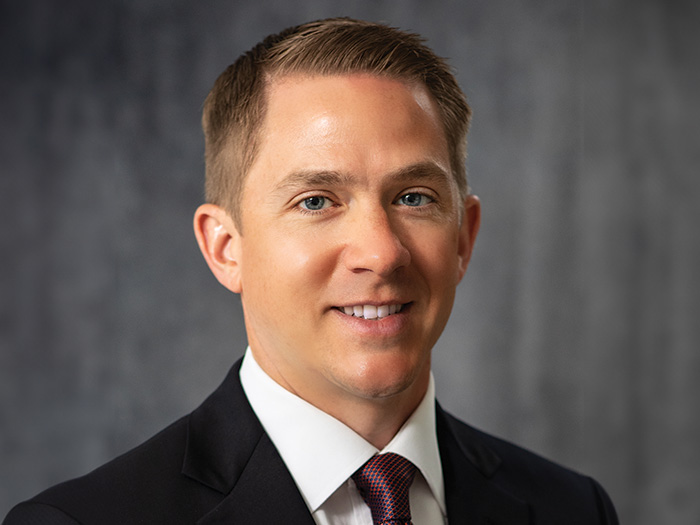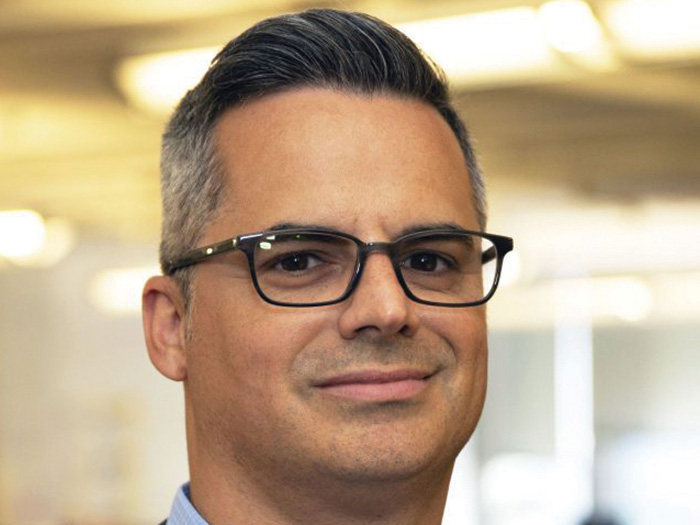Risk Scenario
Ageism, Sexism and Racism in the Workplace Spawn a Slew of Class Action Lawsuits Against a Development Company
Disclaimer: The events depicted in this scenario are fictitious. Any similarity to any corporation or person, living or dead, is merely coincidental.
PART ONE: WINNING THE SPACE RACE
In the realm of design-buildout companies, which specialize in higher-end, live-your-best-life residential communities, there may be no brighter star than Emerald Rocket.

From its roots in 1994, when its founders got their start tricking out former warehouses and factory spaces into artists’ lofts with a focus on community building and healthy lifestyles, the company grew into a national presence, with management hubs in Baltimore, Atlanta, Austin and Portland.
Over time, the Emerald Rocket team used its imaginations and high-energy work culture to become leaders at taking existing, perhaps outmoded, forms of architecture and rebuilding them into young professionals’ dream living spaces, with an emphasis on enlightened, environmentally-forward living.
Its project at Whitewater Creek in Georgia won national awards.
Picture this: A former sawmill on the Chatahoochee River that was converted into a community space, complete with a swimming pool, sand volleyball courts, Georgia clay tennis courts and a sea kayak dock where residents can park their watercraft when they are not exploring on the river. Oh, and did we mention the ten-acre organic farm that also houses a vineyard and a microbrewing guild where neighbors in the surrounding solar-powered homes can test their homebrew recipes?
Founders Davey Bennet and Bruce Schmidt came to their profession through family connections. Both of their families were well-established, more traditional developers. Davey and Bruce used their experiences toiling away in their founding families’ management ranks to hone their professional skills. It didn’t hurt that they both entered their adult lives well-bankrolled by previous generations.
As the pair gathers at the end of 2024 with families and friends to celebrate another fantastic year for Emerald Rocket, all seems well.
But even at this celebratory gathering, there are whisperings about fault lines that run through the company; fault lines that it wouldn’t take a skilled attorney too long to brush off and excavate.
“Did you ever notice,” Davey’s somewhat jaundiced older daughter Glynnis whispers to her cousin Amber as they work their way through a bottle of Grgich Hills Chardonnay, “that every darn one of the members of Emerald Rocket’s executive committee is a white male?”
“A tad tiresome, isn’t it?” Amber says. “And yes, I’ve noticed,” she says, as she moves some charred chicken breast and eggplant around on her plate, without much appetite.
Davey, flushed with wine, and seated a few seats away from Amber and Glynnis, casts a beaming glance at the pair.
The coldness of the glances Glynnis and Amber send back to him give him pause, but only for a moment.
PART TWO: ET TU, LIZETTE?
As they say, if one person is having an idea, someone else is having it, too. At the very moment Glynnis Bennett is sighing and having another sip of chardonnay at the Emerald Rocket yearend party, Lizette Robinson, a senior manager in Emerald Rocket’s Landscaping Division, is meeting with a set of attorneys from Pandaleon, Sadauskas and Schantz, an employment practices law firm in Boston with a specialty in bringing discrimination actions to the fore.

To say that Robinson works as a landscaper would say too little. With a master’s of design in landscape architecture from Northeastern and a B.S. in urban planning from Penn, Robinson is a passionate, well-educated professional. She’s a key piece of the success Emerald Rocket has enjoyed in the last 15 years. And did we mention she’s had it up to here with Emerald Rocket’s “bro” culture of entitlement and self-dealing?
Under questioning from the attorneys, Robinson documents a pattern of workplace discrimination at Emerald Rocket that has the attorneys’ full attention. Robinson tells the litigators that not a single member of Emerald Rocket’s well-compensated executive committee is a woman or a person of color.
Emerald Rocket is privately held with revenues in the $1.5 billion range. Year-end bonuses in the six figures are the norm for the seven-person executive committee, according to documents Robinson has attained from a contact in accounting. Yet those bonuses all go to white males who are already very well compensated. The development executives that brought Davey Bennett and Bruce Schmidt into the world were old school: So too, apparently, are the employment practice philosophies of this younger generation.
Using Lizette as their initial point of contact, the attorneys make the acquaintance of Adam Jameson, an African American regional director of engineering with Emerald Rocket. In addition to his engineering degree from Kansas State, Jameson also possesses a knack for statistics. What Jameson has calculated is eye-opening.
He tells the attorneys that people of color represent 32% of Emerald Rocket’s employee base. At first glance, that looks like commendable representation. But a closer look reveals that very few of those employees are in positions paying more than $50,000 per year.
Jameson further recalls that as COVID wracked the nation back in 2020-2021 and stalled construction projects, mass layoffs affected those of color in the Emerald Rocket workforce in a percentage far greater than any other demographic.
“We had five percent people of color on the job during COVID,” Jameson tells the attorneys.
“How do you know?” one of them counters. The attorneys hear Jameson’s keyboard working.
“Check your inboxes,” Jameson says.
They do. It’s all there.
Not only that, Jameson tells the attorneys, but he represents the ceiling. Not one person of color at Emerald Rocket has been promoted past Jameson’s pay grade, a position he has been in for 10 years.
“Have you ever been nominated or applied for a seat on the executive committee?” an attorney asks.
“Are you kidding me?” is Jameson’s response.
“Oh, and by the way, I know someone else I think you should talk to,” Jameson says.
“Give me a name,” one of the attorneys says.
“Hah! I can give you a hundred names,” Jameson says.
With cases now tumbling into their laps faster than they can jot down the names, the plaintiff’s attorneys wind up with not one, but three separate class actions firmly seated in the commonality and other traits they need for such a case. One class is a gender discrimination set, the other is a racial discrimination group and the third is a set of dozens of complainants alleging they were never considered for open jobs at Emerald Rocket due to their ages.
When confronted with communications from Pandaleon, Saudauskas and Schantz that Emerald Rocket’s leaders foster a discriminatory work culture and that three class actions are in the works, Davey Bennett, Bruce Schmidt and the five other members of the executive committee scoff.
“We’re privately held,” Schmidt opines. “We built this company and they can’t touch us,” he says.
Well, we’ll see.
PART THREE: OPEN YOUR CHECKBOOKS
In testimony, unwilling testimony we might add, from Sophie Lorenz, head of HR at Emerald Rocket, and several others, Bruce Schmidt’s optimism is torpedoed.
“Yeah, he’s not going to get it,” Lorenz recalls in just one instance of Bruce Schmidt looking at an employee’s resume and seeing a college graduation date of 1984. The Emerald Rocket management team seems to think it can fly further and faster if the company is not held down by men and women over the age of 40, which is ironic, since Bennett and Schmidt are both on the other side of 60.
Lizette Robinson, Adam Jameson and other members of the class actions against Emerald Rocket succeed in their legal quest. Emerald Rocket’s owners are found guilty of a well-documented, consistent pattern of racial, gender-based and age discrimination. They are also found guilty of retaliating, in some less well-known interactions, against employees who had complained about the company’s “bro” culture.
The company held Directors and Officers and Employment Practices Liability insurance, with a combined total limit of $20 million. That didn’t quite cut it compared to the total of $140 million combined in three separate verdicts handed down by juries in Baltimore, which is where Emerald Rocket is headquartered.
Emerald Rocket survives, living on the remnants of its tattered reputation. But the public relations damage of the discrimination class actions feeds even more accusations, as current and former employees emboldened by the company’s legal woes allege dubious sales practices, with allegations of bribery of public officials in various locales in the mix.
Just as damningly, a reporter for the Courier-Journal in Louisville, Ky. breaks the news that a subcontractor for Emerald Rocket illegally discharged waste water into the Ohio River — yet another reputational gut-punch for a company that made its name as a progressive, environmentally-sensitive developer.
Emerald Rocket loses four of its biggest customers due to the reputational damage it’s suffered. That in turn leads to severe financial pain, leading to the company defaulting on loan covenants with key lenders.
It still competes in some regional niches, but those niches are growing smaller and smaller all the time.
There is no year-end party for Emerald Rocket execs and their nearest and dearest at the end of 2027.
“Fine by me,” Glynnis Bennett texts to Amber Bennett at the news.
“Those parties were boring anyway.” &
![]()
Risk & Insurance® produced this scenario in conjunction with Berkshire Hathaway Specialty Insurance. This scenario is provided for general educational and informational purposes only as an example of the type of claim(s) that may be submitted under a liability policy. Applicability of coverage terms depends on the actual facts of each individual claim and the terms, conditions and exclusions of the applicable insurance policy. The information contained herein is for informational purposes only and may not be relied upon as legal, financial, regulatory, compliance, or any other type of professional advice. Not all products and services are available in every jurisdiction, and insurance coverage is governed by actual policy language.
Emerald Rocket was devastated by financial and reputational damage that was ultimately preventable. All organizations, public, private and nonprofit, can learn from this scenario and take steps to mitigate their own exposures by::
- Ensuring that employment practices are up-to-date and reviewed by outside counsel with expertise in employment matters.
- Documenting HR practices and policies for all employees in handbooks and reinforcing them with regular, documented workforce training.
- Affirmatively and proactively gathering and reviewing employee compensation data for equal pay compliance. Several states, including New York and Illinois, have expanded the scope of pay equity to cover not only equal pay for equal work, but also for “substantially similar” or “comparable work”. When Governor Newsom signed SB 973 on January 1, 2021, California became the first state to require employers to report on their pay data, modeling this reporting on the EEO-1 Component 2 reporting. Working with members of the Legal and Risk Management Department may be helpful. In addition, if pay differentials for equivalent positions exist, companies should have a sound rationale for that difference – and document it.
- Regularly taking stock of hiring processes to be sure they are inclusive and attract diverse candidates. (For instance, a recent lawsuit was filed against a company that recruited exclusively from college campuses – which was alleged to be indicative of a bias against older candidates.)
- Hiring a human resources professional who has thorough knowledge of employment practices and policies and ensuring that they have a real ”seat at the table” to frankly discuss issues or concerns that arise. Too often companies focus this pivotal role solely on payroll and administration.
In addition, companies should work with a broker who can help them realistically assess their exposure and the primary and excess coverage limits necessary to protect the business and the personal assets of their executives. Consideration should be given to the full spectrum of management liability exposures. In addition to D&O and employment practices liability, cyber, fiduciary liability and crime exposures should be assessed.











